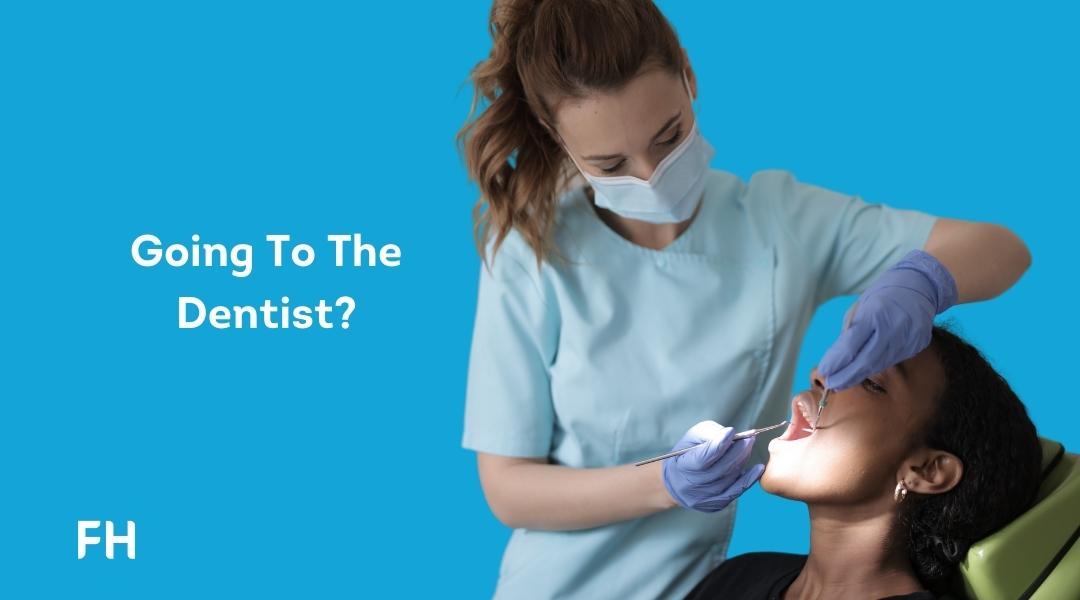What You Should Know Before Going To The Dentist
Please note, this is not medical advice and is only my opinion. Please consult your dentist and doctor on what is safe for you.
So, you need to go to the dentist but don’t know what is safe for you after Fluoroquinolone toxicity (FQ). I can totally relate, and I wanted to make a helpful guide that provides information that will keep going to the dentist a breeze.
When I think of the dentist, the first thing that comes to my mind is fluoride. Why is that, anyway? Well, maybe it is because dental products are loaded with fluoride. This is just one issue in dentistry but let us look at all the other things to look out for.
What is the deal with Fluoride?
The first thing in any dental procedure is to tell your dentist you do not want anything in your mouth that has fluoride. Since the 1950s, fluoride use has been touted as one of the great public health victories in the United States. Public water fluoridation is promoted throughout the country as an important measure to combat tooth decay, and fluoride is the only chemical added to water for purposes of medication.
You have taken a fluoridated medication, that is where the “Fluoro” in Fluoroquinolone came from. So taking more fluoride will ultimately be an issue as fluoride accumulates in the tissues of the body. Fluoride toxicity is real and a lot of the symptoms after FQ toxicity are the same, see this article https://fluorideresearch.org/CFTS/files/CFTS.pdf
The Big three
Patients with complex medical and drug histories are becoming more commonplace in dental practice. Non-steroidal anti-inflammatory drugs (NSAIDs) inhibit the renal excretion of lithium and lead to lithium toxicity. Dentist prescribe NSAIDs all the time for pain relief. However, after FQ toxicity, the body is unable to handle the primary mitochondrial stress created from these drugs.
Metronidazole and fluconazole inhibit the metabolism of the cytochrome P-450 2C9 (CYP-2C9), the major metabolic pathway of which Fluoroquinolones do the same to the liver pathway important for excretion of toxins. Moreover, fluconazole is fluoridated, causing more fluoride poisoning.
Propofol, a common anesthetic used in sedation before dental procedures can be problematic, here is why. This is a global central nervous system depressant. It directly activates GABA(A) receptors. In addition, propofol inhibits the NMDA receptor and modulates calcium influx through slow calcium ion channels. After FQ toxicity, some patients have neurological problems, which can lead to severe issues. So staying away from Propofol may be a good idea.
Are there heavy metals in my mouth?
In the dental world they’re called amalgam fillings and while they’ve been used in dentistry for the last 150 years, nowadays, they aren’t as popular—and for good reason. With all the advancements in medicine, health and science, we know more today about things that cause us harm and affect our health. There may be heavy metals in your mouth, but can that be an issue?
Amalgam fillings are actually a combination of metal, and we’ve already mentioned that they contain mercury. But what we didn’t tell you yet is that these so-called silver fillings are actually around 50% mercury! As the main ingredient in an amalgam filling, the metals silver, copper, tin, and zinc fill in the rest to form an alloy.
Because mercury fillings will also harm your teeth and your health because it is a heavy metal. Since they’re an alloy of dissimilar metals, the metals corrode, and this corrosion causes the metal to expand, which over time cracks the tooth. Then these heavy metals get into your blood stream, causing issues long term.
So, tell your dentist you want white (porcelain) fillings in place of silver. These new fillings are shown to be safe and mercury free.
I need a filling, and they want to numb me, is that okay?
Before any dental procedure, the dentist will most likely use Novocaine, which numbs the area around the tooth and nerves. This medication has been shown to be very safe and effective. I, personally, used it multiple times, and it seems to have no side effects. Moreover, many other “floxies” have used this during dental procedures and have tolerated it just fine.
Articaine and epinephrine are anesthetics (numbing medicines). They work by blocking nerve signals in your body. Articaine and epinephrine is a combination medicine used to numb your mouth for a dental procedure. Both of these have been shown to be safe and tolerated by many.
I hope this helps you understand some things in dentistry that can be counterproductive to your health. Please speak with your dentist on what you feel may be safe for you.













… [Trackback]
[…] Read More on that Topic: floxiehope.com/dentist/ […]
… [Trackback]
[…] Read More to that Topic: floxiehope.com/dentist/ […]
… [Trackback]
[…] Here you will find 11645 additional Info on that Topic: floxiehope.com/dentist/ […]
… [Trackback]
[…] Read More Information here to that Topic: floxiehope.com/dentist/ […]
… [Trackback]
[…] Read More on that Topic: floxiehope.com/dentist/ […]
… [Trackback]
[…] Read More on on that Topic: floxiehope.com/dentist/ […]
… [Trackback]
[…] Read More here to that Topic: floxiehope.com/dentist/ […]
… [Trackback]
[…] There you will find 55268 additional Info on that Topic: floxiehope.com/dentist/ […]
… [Trackback]
[…] Read More Information here to that Topic: floxiehope.com/dentist/ […]
… [Trackback]
[…] Read More to that Topic: floxiehope.com/dentist/ […]
… [Trackback]
[…] There you will find 6764 more Information on that Topic: floxiehope.com/dentist/ […]
… [Trackback]
[…] Find More Information here on that Topic: floxiehope.com/dentist/ […]
… [Trackback]
[…] Information on that Topic: floxiehope.com/dentist/ […]
… [Trackback]
[…] Find More here to that Topic: floxiehope.com/dentist/ […]
… [Trackback]
[…] Read More on that Topic: floxiehope.com/dentist/ […]
… [Trackback]
[…] Info to that Topic: floxiehope.com/dentist/ […]
… [Trackback]
[…] Find More here to that Topic: floxiehope.com/dentist/ […]
… [Trackback]
[…] Here you can find 20412 additional Information on that Topic: floxiehope.com/dentist/ […]
… [Trackback]
[…] Here you will find 84477 more Information to that Topic: floxiehope.com/dentist/ […]